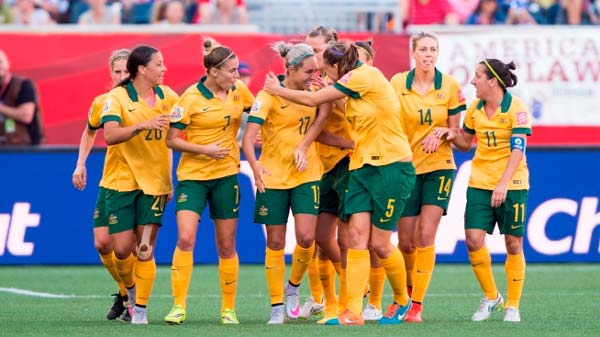When it comes to sports coverage we’ve got a variety for you to choose from including the likes of football, soccer, cricket, tennis and rugby just to name a few.
Both our television and radio broadcasting networks provide complete coverage of all the games and switch into hyper drive when the finals series come along.
And while all this coverage is great, it seems to be masking what is being neglected year in and year out, women’s sport.
If you watch the events that are broadcast throughout the year, you will be quick to notice the gender gap in the coverage that is shown to the public.
The Towards a Level Playing Field: Sport and Gender in Australian Media report shows that on average, the coverage of women in sport make up only 9% of all sports coverage in Australia compared to male sport which occupies a huge 81%.
These statistics also show that over the last few years, coverage has declined from when it was 11% a decade ago.
However, with new reports showing that 2017 is gearing up to be one of the biggest for women in sport, this lack of coverage could slowly be turning around giving women’s sport a chance to share the spotlight in the male dominated industry.
It has been announced that 2017 could be the most prominent year for women’s sport in Australia so far with new AFL and netball competitions set to join the current soccer, cricket and basketball ones that presently exist.
Currently, netball is the only professional women’s sport in Australia. When they signed their historic five-year broadcast deal, it was a breakthrough for women’s sport in this country and set the benchmark for what other sports should be doing with their women’s leagues.
Today, the W-League launched their 2016/17 season to a room crowded with journalists and sporting officials. This year, the launch was met with more interest in the sport than usual with the media genuinely excited to see what the upcoming season will hold.
It was also announced that ESPN 3 would be televising live W-League games direct to USA.
This comes as an outstanding breakthrough and coverage boost for women’s football considering that previously, only one W-League game was broadcast on free-to-air TV a week with the remainder being shown on fox sports.
Despite these upcoming changes, this gender gap in Australian sport still has a long way to go with statistics showing the average wage of a male AFL player being $270,000 compared to a female National Netball Team player who receives on average $45,000 per year.
This is something important that needs to recognised as this gap and lack of broadcasting keep producing the image that there is a lack of career opportunities for women who wish to pursue sport. Furthermore, this lack of coverage means female role models are not publicised as much as they should be so that the younger generation can look up to and aspire to be like them, just as young boys do with their favourite AFL player.
It is important that women are encouraged to participate in sport and for the media and broadcasting industries to begin recognising women’s sport as a league of its own and not just a side to the men’s leagues.

![5 Reasons You Should Travel Alone Airplane [image source: chau nguyen/ http://thedevilhatessweatpants.blogspot.com.au ], crowd ink, crowdink, crowdink.com, crowdink.com.au](https://crowdink.com/wp-content/uploads/2016/08/Chau-airplane-218x150.jpg)




























![5 Reasons You Should Travel Alone Airplane [image source: chau nguyen/ http://thedevilhatessweatpants.blogspot.com.au ], crowd ink, crowdink, crowdink.com, crowdink.com.au](https://crowdink.com/wp-content/uploads/2016/08/Chau-airplane-100x70.jpg)


